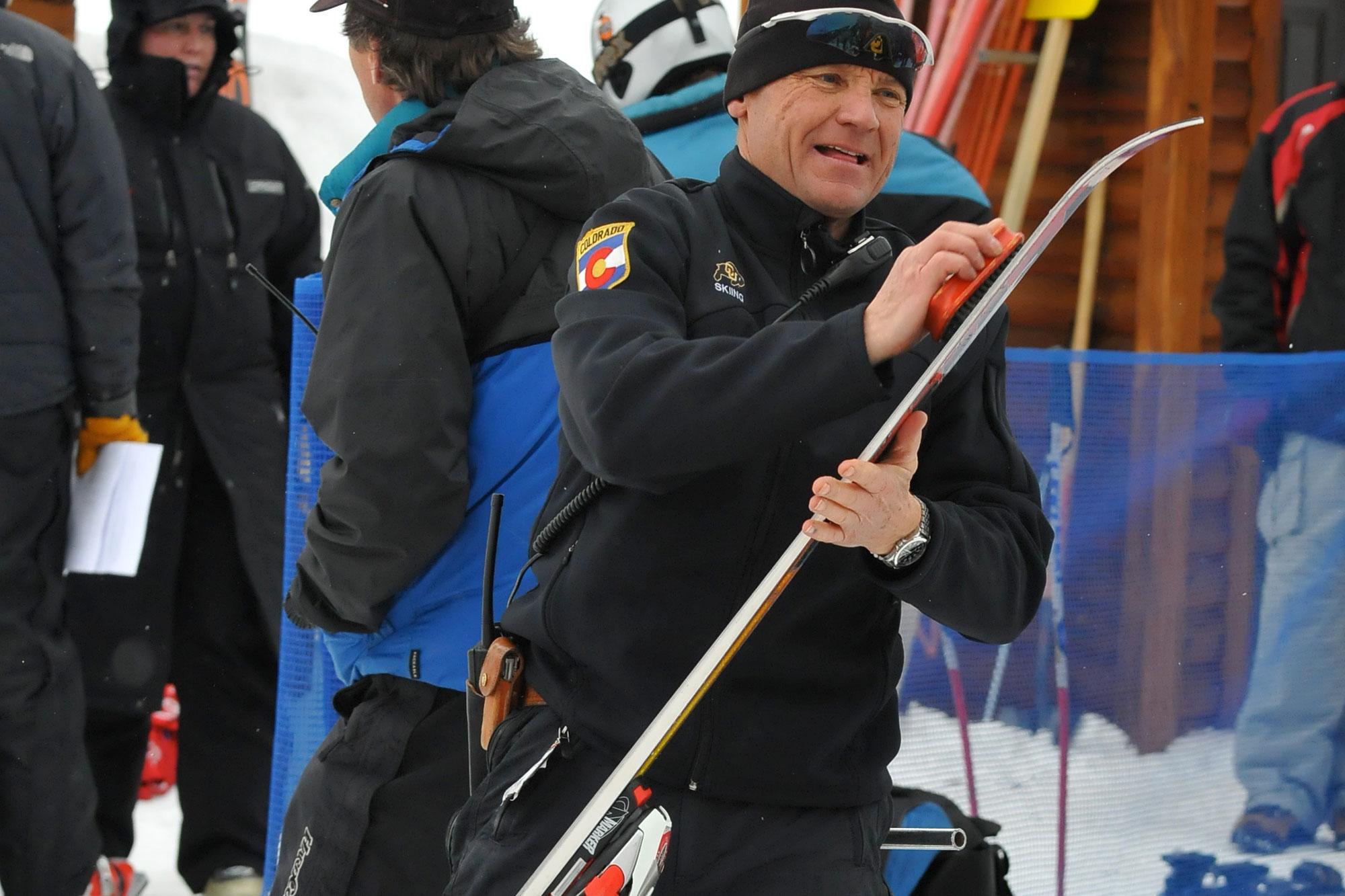

The unconventional journey of Richard Rokos started behind an iron curtain and wound up atop the Rocky Mountains.
After fleeing Communist Czechoslovakia in 1980, Rokos found asylum in the United States. And for the last 29 years, he’s coached a University of Colorado ski team that has won eight NCAA titles. He’s the longest-tenured ski coach in CU history, and no other CU coach in any sport has won more NCAA titles than Rokos.
This week, Rokos will lead his team into the CU Invitational at Eldora Mountain Resort in a one-of-a-kind event. The three-day exhibition will feature traditional and giant slalom races, as well as a dual slalom that will take place under the lights Friday night. The event will feature some of the top collegiate racers in the country.
The event is Rokos’ brainchild and he hopes it becomes a staple in NCAA ski competitions.
Rokos spoke with CPR’s Vic Vela about the race, as well as his exceptional life and career.
Interview Highlights
On why he was drawn to the 1964 Winter Olympics American ski team:
"In our country, we had a great affinity for United States after the second world war. In fact we were liberated (from the Nazis) mostly by Americans. So watching the Olympics, Americans were more on my radar screen than anyone else. I knew Austrians, the French and Italian teams. And here comes this group of cowboys, young guys from the United States with fairly limited experience in European racing. They were the underdogs, but they kicked you know what."
On surviving the political tensions rising in central Europe:
"Communist leaders wanted anyone with half a brain to join the party. Lots of people did it, but I didn’t feel that way. I didn’t want to be apart of it. So we kept going back and forth and in the end, I didn’t have a choice. I had to leave because they gave me an ultimatum: You will join the party or you lose your job. So I talked to my wife and said if I can’t do what I like to do — and I really liked coaching and teaching — let’s move out."
On being hired in America by Bill Marolt, one of the 1964 Olympic skiers who inspired him:
"When I was 14 in 1964, I had no idea that one day I would end up being very close associates with the same boys (from that Olympic team). Because obviously, after the Olympics, they were gone, I didn’t follow up on them until I met them again, 30 years later. Very amazing things in life happen."
On his friendship with champion skier Jimmie Heuga, who passed away in 2010:
"We gave Jimmie a three-wheeler hand cycle that he could race with, that would accommodate his disability. And Jimmie just fell instantly in love with it. Because he could feel the air moving, he was on his own, nobody pushing him. For the next five years, I took him on the CU track so he could exercise with his hand cycle. And he was lapping and lapping. He enjoyed it and I did, too."
On what he hopes to accomplish with the CU Invitational event:
"We’ve always been trying to improve (races), change formats a little bit, make it more attractive so people can come and enjoy seeing it. Equipment and technology changed, but the format has remained the same. (The new race) is exciting. It’s on a very geographically small area. It’s very spectacular. We’re hoping to bring people out, at the same time I am trying to document it as much as possible because this will go as a proposal to the NCAA to enter it as a third event to the Alpine format, for future NCAA championships."
On how he became such a successful coach:
"Perseverance. That’s something I came with and had all my life, and drives my life since the very beginning. And it’s working with young people. That’s my passion. It’s something, when you look ahead and say 'I can improve his or her life and make them succeed' in sport or life — and it’s all connected, sports and life, it’s so close together."








